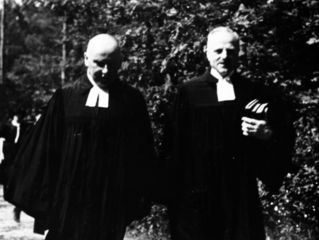Did head of the institution Friedrich von Bodelschwingh the Younger put up resistance?

From today's perspective, Bodelschwingh's actions are viewed ambivalently. There is also talk of delaying resistance.
Since the late 1980s, historians have been researching Friedrich von Bodelschwingh's role in National Socialism. As head of the institution, he was responsible for a facility with over 5,000 nursing and care places. Bodelschwingh opposed "euthanasia" on Christian grounds. However, he did not protest vociferously, but instead relied on his communication skills. Bodelschwingh criticised the killing of the sick in letters to authorities and party functionaries and in conversations with leading figures in the Nazi state. The same applied to Gerhard Braune, the director of the Hoffnungstaler Anstalten in Lobetal near Berlin, which was affiliated with Bethel. In July 1940, Braune had written a memorandum in close consultation with Bodelschwingh in which he provided details about the murder of the sick in the German Reich that had previously only been surmised.
Bodelschwingh also deliberately refused to fill in the "Aktion T4" registration forms. However, in the run-up to the visit of the "T4 doctors' commission", he was in favour of pre-categorising all patients at Bethel. The hospital doctors examined all men, women and children and divided them into seven categories, whereby it had to be assumed that the first three categories would fall victim to "euthanasia" - an attempt by Bodelschwingh to avoid arbitrary selection and prevent deportations. However, this was a difficult balancing act, which later led to him being accused of partial collaboration with the National Socialist state.